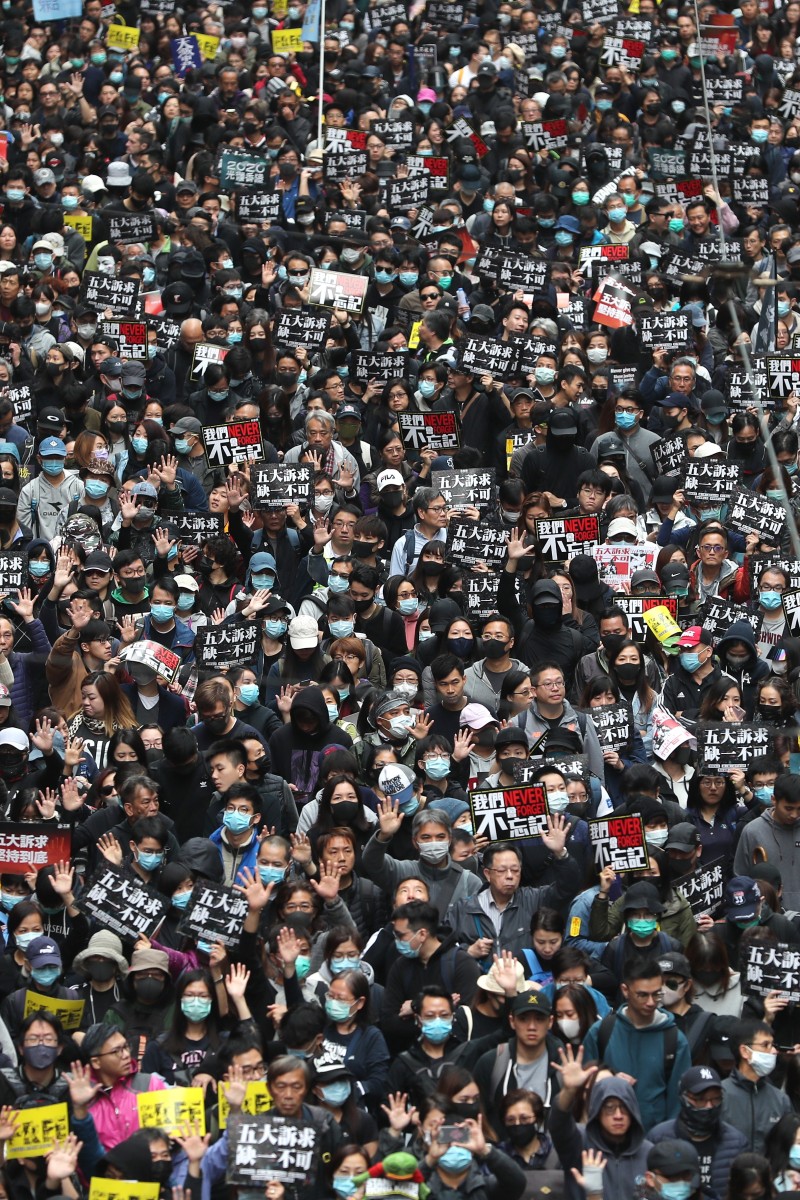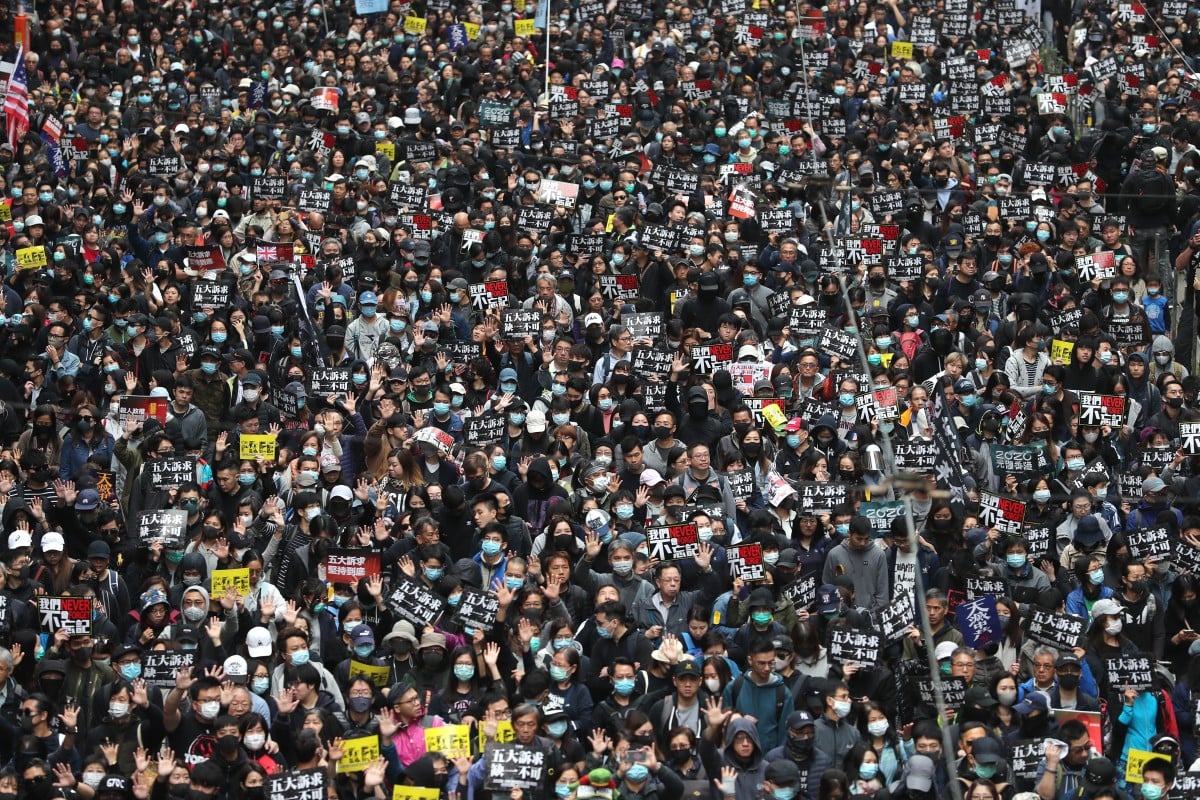
Hong Kong protests: More than 2 million adults in the city show signs of post-traumatic stress disorder, study finds
Experts warn city is poorly equipped to deal with huge mental health burden
 More than seven months of protests have left Hong Kong with a possible mental health crisis.
More than seven months of protests have left Hong Kong with a possible mental health crisis.Almost one in three Hong Kong adults, amounting to more than two million people, have shown symptoms of post-traumatic stress disorder during the prolonged civil unrest in the city, a study published in a leading medical journal has found.
The number was six times higher than four years ago, just after the Occupy protests had ended.
University of Hong Kong academics, who conducted the study, urged the government to step up its mental health provisions. Their research also suggested that up to 11 per cent of the city’s adult population were affected by probable depression last year, five times higher than the figure collected from 2009 to 2014, when it was just two per cent.
The best resolutions for your mental health
The research, published in an article in The Lancet, was the largest population-wide mental health survey – as questionnaires were sent to more than 18,000 residents aged 18 or above – as well as the longest observational one, comparing data across 10 years from 2009 to 2019.
The figures represented the equivalent of 1.9 million more adults with PTSD symptoms, and an additional 590,000 adults with probable depression compared to a decade ago.
More than 40 per cent of secondary students highly stressed
The HKU research compared the findings from two initial surveys, conducted from 2009 to 2014 and involving more than 18,000 Hong Kong residents, with the results of seven more surveys, each involving between 1,200 and 1,700 adults, conducted from 2014 to November last year.
PTSD symptoms were only reported by five per cent of the respondents in March 2015, but rose to almost 32 per cent from September to November last year.
“[It] could mean an additional 1.9 million adults with PTSD symptoms,” the article said.
It also found that 22 per cent of Hong Kong residents surveyed during the 2019 protests reported probable major depression or suspected PTSD.
Is your mental health suffering? It might be compassion fatigue
“The authors [of the study] say that this is comparable to the prevalence of mental health conditions observed following large-scale disasters, armed conflicts or terrorist attacks,” the article read.
